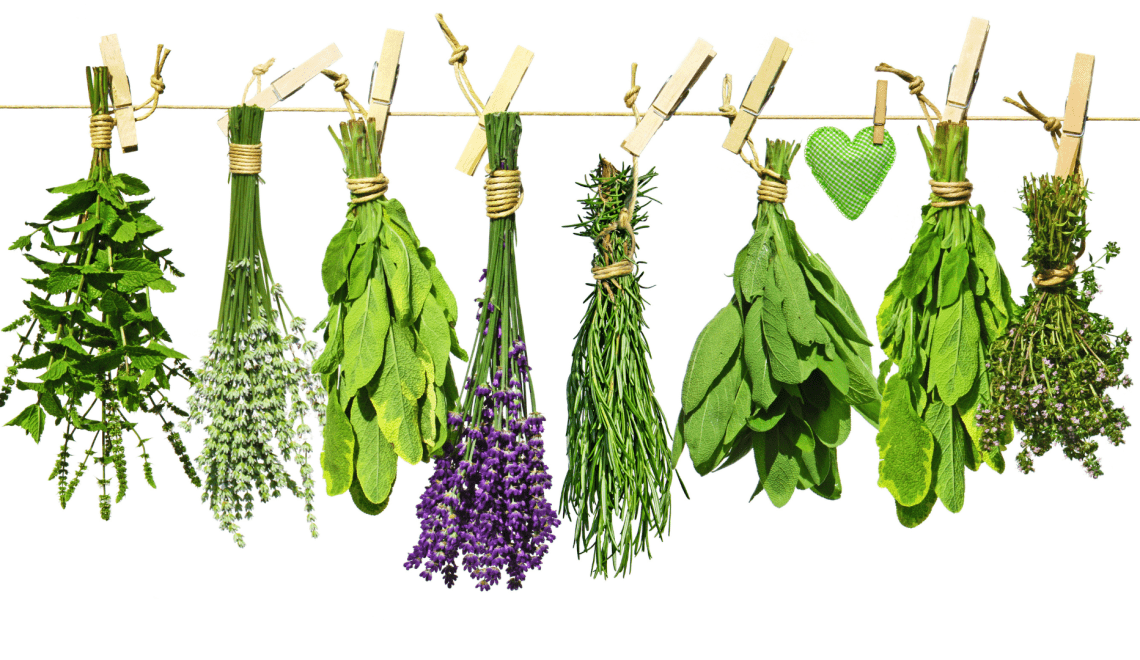
As we grow older, our bodies and metabolism begin to slow down steadily. The ease of movement we may have taken for granted in youth becomes a more pressing problem with each passing year.
One particular bodily function that slowly degrades with age is our mobility. In particular, our joints can become stiff and inflamed, which can make it harder for us to exercise our usual levels of dexterity and mobility.
If you’re experiencing this very problem, it’s important to know that you’re not alone. The entire situation can feel helpless, but it’s important not to fall into that wallowing pit of despair. There’s a light at the end of a tunnel, and it doesn’t involve or require a large bank account and extensive recovery time.
This solution comes in the form of Mother Nature’s natural healers: herbs. These time-tested plants have been used for centuries across various cultures and regions for their ability to heal a wide variety of ailments.
These claims aren’t pseudoscience either; there’s plenty of scientific evidence that supports these herbs as a valid form of treatment for various health conditions. And yes, senior joint mobility challenges are chiefly included among these health problems.
So, this begs the question, what herbs are most effective for treating an ailing senior’s joint health? If you’re looking for answers to that very question, you’re in the right place. Read on to see the list of the most popular herbs that can support senior joint health.
Let’s jump right into it!

-
Turmeric
Turmeric is one of the most acclaimed herbs out there, especially in South and East Asia. And a quick glance at its nutritional profile makes it easy to see why.
This iconic golden spice has been the cornerstone ingredient for various dishes, teas, and medicinal concoctions, and this is thanks to its main active compound: curcumin.
Curcumin’s wide array of benefits is multifaceted, and its biological contributions are exceedingly profound.
For one, it helps reduce inflammation in the body by blocking the activation of certain proteins that activate this function. For people facing swelling and heat—two common symptoms of arthritis—this can provide some relief.
Furthermore, curcumin is also antioxidative, meaning it can neutralise free radicals that contribute to the deterioration of the cartilage and joint linings. Its effects don’t stop there—it also slows down the degradation of collagen in the joints by inhibiting key enzymes, helping keep the bones cushioned and comfortable.
Turmeric can be ingested in a variety of ways—from teas to capsules. That said, it’s important not to take too much of it before surgery or if you’re on blood-thinning medication. Regardless, this spice is a great addition to any diet for elderly people suffering from joint pain.
Looking to improve your joint health with herbs or spices? Consider checking out joint-protecting herbs and spice from Austral Herbs.
-
Eucalyptus
Native to Australia, the eucalyptus plant is an easily accessible herb for many Aussie-based seniors. This aromatic evergreen tree is part of a large genus of trees from the myrtle family, making it relatively easy to source.
What binds all eucalyptus trees together is the presence of one principal component called eucalyptol or cineole. This compound is a medicinal compound that reduces the body’s inflammatory response by suppressing pro-inflammatory cytokines like IL-6 and tissue-damaging cells.
On top of that, eucalyptol scavenges free radicals in the body. This helps keep the joints mobile and capable of moving with no inhibitions. Furthermore, eucalyptus is also aromatic and cooling in nature, which helps loosen up tight muscles and increase blood circulation.
The eucalyptus herb can be taken in several ways. A common approach is to add eucalyptus essential oil to hot water. Following that, seniors with joint problems can inhale the steam for 10 minutes. This helps ease respiratory issues like cough and nasal congestion.
Another way people can ingest eucalyptus is by brewing dried eucalyptus into a tea, particularly approved medicinal eucalyptus species. Eucalyptus tea can help promote relaxation and joint health relief, making it a great herb for seniors suffering from arthritis or degenerative bone conditions.

-
Aloe vera
Another herb that seniors can consider to boost their joint health is aloe vera. This fleshy herb is packed with many vitamins, enzymes, and amino acids that help keep inflammation at bay. This herb is something that people experiencing swelling, discomfort, and tenderness take to feel better.
A popular way to take aloe vera is to rub it on flesh—aka, the topical route. This is particularly useful when done directly onto the affected area.
Alternatively, seniors can ingest Aloe vera in juice form to help reap the benefits of this plant. This can help keep internal inflammation from being too symptomatic and painful. It also helps promote recovery for wounds and injuries, as well as prevent possible infections from spreading.
That said, be sure to stick with food-grade aloe vera and not prepare it your own. If ingested irresponsibly or in combination with some medications, it can cause GI issues and liver problems—so be sure to speak with a medical professional before incorporating this herb into your daily diet.
-
Ashwagandha
Ashwagandha is an evergreen shrub more exotic than most in this list, found in the Middle East, Africa, and India. It’s most commonly found in India, which is why this herb is sometimes called Indian ginseng.
This herb has a slew of wonderful properties that make it a standout alternative medicine ingredient, containing active compounds such as withanolides, alkaloids, and sitoindosides. These compounds have antioxidant effects that can aid in muscle relaxation and eliminate feelings of stress, among many other helpful bodily functions.
On top of that, Ashwagandha also has anti-inflammatory effects that help reduce the gradual degradation of the joints. Moreover, it also reduces pain and swelling coming from conditions like osteoarthritis, making living with this health condition a bit more manageable.
Ashwagandha can be taken in one of three primary ways: in powdered form, mixed with water or a beverage of your choice; in tablet form, with the dosage prescribed by your doctor and the tablet label; and directly with water as an extract.
-
Cat’s claw
Another herb remedy that seniors suffering from joint problems can consider taking is Cat’s claw. This climbing herb originates from Central and South America, and it’s famous for its claw-like thorns that allow it to scale trees.
This plant has been studied for its joint-boosting properties, and one 2020 study has found that supplementation can help minimise pain for seniors with hip and knee problems. In another study, over half of all the participants suffering from painful joints claimed that taking cat’s claw had helped reduce their symptoms.
Cat claw extract contains many ingredients that can help modulate the immune system and reduce oxidative stress. This comes from the polyphenols and catechins found in the bark of the herb.
This herb can be taken in tea or capsule form. In any case, it’s best to prepare a dosage somewhere between 30 to 300 mg of extract daily. By taking this herb responsibly, seniors can experience reduced stiffness and improved mobility in their bodies.
We hope that you’ve learned the benefits of each of these herbs in greater detail. In any case, it’s always best to talk with a medical professional before making any drastic changes to your diet or supplementation plan.
We wish you the best in managing your joint problems.








